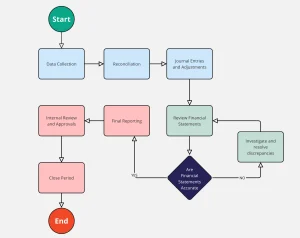
Sustainable investments provide an opportunity to support the United Nations Sustainable Development Goals and reduce inequality, as well as increase profitability and resilience during market downturns.
Some believe investing sustainably requires sacrifice – accepting lower returns in favor of greater good. Yet evidence is growing to demonstrate it’s possible for conscious investors to still make money.
1. Environmental Impact
ESG investing aims to evaluate a company’s impacts on people and planet, and integrate those considerations into traditional financial analysis. However, this approach alone cannot ensure that policies and investments of a given firm contribute towards sustainable development or mitigate climate change, among other considerations.
Investors must play an active role and demand that companies report on the outcomes of their ESG initiatives, including metrics such as customer accounts hacked, water saved per customer account accessed, carbon emissions reduced and proportion of women or people of color promoted into leadership positions.
Engagement like this can also contribute to shareholders’ satisfaction with governance practices, evidenced by recent votes against directors and challenges to executive compensation plans. Furthermore, it bolsters shareholder advocacy efforts such as those launched by Engine No. 1 against Exxon Mobil to take steps against climate change.
2. Social Impact
Investment in companies that prioritize gender equality, reduce their carbon footprint and promote diversity and inclusion is becoming a growing trend among ESG-sensitive investors. Businesses which prioritize sustainability-related efforts may also be better equipped to manage risks effectively and create long-term value for shareholders.
Companies that prioritize ESG criteria may also be better equipped to address regulatory changes, enhance operational efficiencies and build brand recognition – benefits which may help drive long-term sustainable performance and ultimately raise their valuations.
Investors seeking to reduce exposure to companies or industries with particular negative impacts may opt for ESG screening, which includes the exclusion of tobacco or animal testing companies. This form of negative screening allows less restrictive investing as it allows investments in companies which have made strides toward positive environmental and social impacts such as reduced water waste or generated significant recycling numbers.
3. Governance
Sustainable investing that prioritizes business ethics involves selecting companies whose practices prioritize these ethics. For instance, this could involve looking at disclosure and reporting standards or responses to investor or consumer concerns like unethical labor practices overseas; all efforts that help drive change and foster positive market dynamics.
Prior to late-2018 and 2020’s stock market declines, ESG investments had proven particularly resilient against economic fluctuations. Since this market turmoil hit in late-2018 and 2020, many investors have expressed more of an interest in including ESG components into their investments.
Surveys of asset owners show that over half anticipate allocating solely to investment managers with formal sustainability strategies in the future, signaling mainstream acceptance. Yet there remain barriers to this new type of investing, including lack of quality data and tools to measure ESG goals; initiatives like ESG rating agencies, disclosure reporting standards and green bond standards aim at alleviating such hurdles.
4. Financial Impact
As sustainable investing gains popularity, investors are demanding that its impact be considered alongside financial performance when making investment decisions. Many retail investors are placing their life savings into sustainable investments and want to see both impact and return.
ESG integration refers to incorporating environmental, social and governance (ESG) factors into traditional financial analysis to identify risks and opportunities not captured by conventional metrics. Negative screening removes companies involved with products or practices considered harmful, such as tobacco smoking, fossil fuel extraction, weapons manufacturing or supporting apartheid while positive screening selects investments with strong ESG performance or that lead their industry in sustainability.
Investors increasingly favour companies that prioritize addressing social issues, such as gender equality and access to education and healthcare. A growing consensus around carbon emissions reduction drives clean energy investment as well. Furthermore, investors favour companies which prioritize responsible sourcing practices as these can reduce both environmental and social impacts from supply chains.



